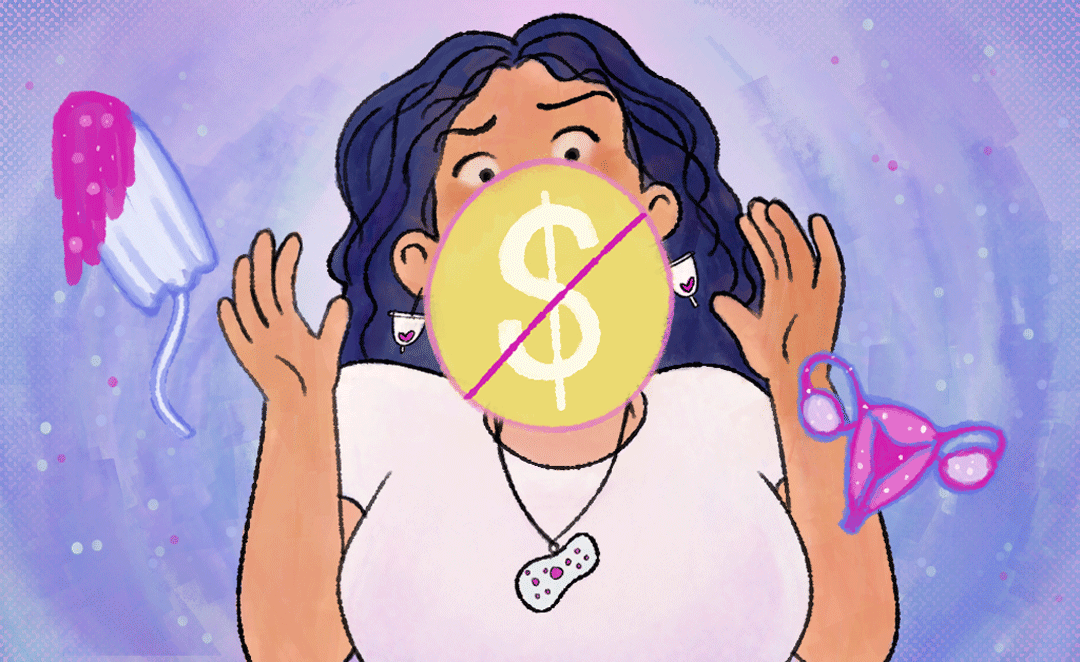
Censorship, Social Media, & Periods
Share
In recent years social media has laid a virtual smackdown on things they believe to be taboo, mature, or might put off advertisers. We’ve seen overhauls on YouTube, with many content creators having their videos flagged, demonetized, or taken down. Entire TikTok accounts are finding themselves shadowbanned, restricted, or even suspended. Tumblr was, essentially, wiped clean of anything deemed even remotely pornographic, mature, or “gross.” Now, we find Instagram has joined the list of social media platforms that have begun censoring or cracking down on what they consider “mature” content.
When it comes to bans and restrictions, the side you do not see is that much of the censored content is based on menstruation and menstrual health. These platforms are flagging images and content based around periods because they think it is too mature to be seen by the general public. Sadly, this concept is not new.
Since the early 2010s, we have seen the internet evolve from being an open and free space without limits to a more heavily monitored space as younger audiences gained access to it. In 2015, artist Rupi Kaur found her photo series based on periods with images of menstrual blood censored by Instagram. Officials claimed that the images were too “mature” and violated community guidelines even though Kaur was fully clothed and the image contained no nudity or violence. After public outrage, Instagram restored the images claiming it was an accident.
But this is not the first or the last time this has happened. In 2016, Etsy censored images of period-themed jewelry and removed artist Lili Murphy-Johnson’s shop, claiming it was too mature for their website. The listing was never replaced as Murphy-Johnson refused to mark the images as mature.
In 2019, an ad showing men menstruating by Thinx, the period underwear company, was taken off air due to outrage over the depiction of menstrual blood and tampon strings. It was labeled explicit and could not run on air in its original form unless the specific depictions were removed.
Menstrual artists on Instagram have been censored or marked with mature content warnings due to their bloody art pieces’ supposed “violent” nature. Not to mention that TikTokkers are finding it difficult to keep videos up without mature warnings or shadowbanning of their accounts if they depict bloody tampons, pads, or showcase images of genitalia.
While these companies often crusade under the idea that they protect children and underage individuals from witnessing mature content, they only further the stigma that society has placed upon menstruation. Menstrual blood shouldn’t be viewed as dirty, mature, or violent, as it is a natural part of the lives of people who menstruate, starting from their preteen years or even younger for some. To have something so natural be labeled as dirty only makes those who menstruate feel more at odds with their body and society as a whole.
The unjustified censorship goes beyond menstruation to the majority of things that have to do with the anatomy or experiences of those assigned female at birth. Things like breastfeeding, pumping, and even nipples, in general, are all considered too sexual to be posted on social media. Recently, TikTok issued a string of bans, and videos were removed of trans men and nonbinary creators showing their transition or exposing their chests. Even if they’ve received top surgery, these individuals face censorship on a grand scale where cis-men do not.
Social media conglomerates heavily regulate anything remotely connected to the anatomy of someone born with a vagina, and for many creators, this censorship is dehumanizing. Social media can be used to escape reality, share one’s true self, and cultivate community; sexist regulations tarnish that.
While it is understandable that certain things are less suitable for children, the anatomy and natural processes of the body are suitable and should not be censored. Nor should these body parts or processes be deemed dirty and something to hide. Censorship only furthers stigma and keeps society in a divided state, halting progress. In the year 2021, it should be unbelievable that this offshoot of censorship is happening, but unfortunately, it is and it is not shocking.
